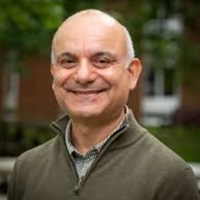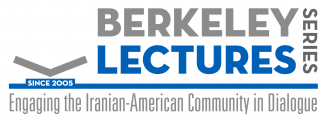Berkeley Lecture Series Presents:
A Lecture by
Dr. Kamran Matin
Topic:
The Holy Family: Iranian Leftists and the Kurdish Movement
Date: Sunday, August 11th, 2024
Time: 11:00 am (PDT); 9:30 pm (Tehran); 8:00 pm (CEST)
Place: BLS Virtual Conference Room
سخنران: دکتر کامران متین
موضوع: خانواده مقدس: چپ های ایران و جنبش کردستان
تاریخ: 11 آگوست 2024
ساعت: 11 صبح کاليفرنيا، 9:30 شب تهران، 8 شب اروپای مرکزی
محل: سالن کنفرانس های مجازی گفتارهای برکلی
سخنرانی به زبان انگلیسی
جزئيات چگونگی ورود به سالن سخنرانی در همين صفحه با رنگ قرمز متمايز شده است. روی آن کليک کنيد.
The Jin, Jiyan, Azadi (Woman, Life, Freedom) revolutionary movement has exposed the ideological solidity of Iranian nationalism, based on Persian supremacy, not only within right-wing reactionary groups but also within certain segments of the Iranian left. Indeed, some leftist intellectuals have gone as far as condemning the Kurdish movement for national rights and recognition as divisive, reactionary, and particularistic. And yet, the same intellectuals have displayed no scruples in supporting the Palestinian anti-colonial nationalism. In this lecture, I argue that this political inconsistency is symptomatic of Marxism’s inability to provide a social theory of nationalism. I argue that the roots of this inability, which Tom Nairn has famously described as Marxism’s ‘great historical failure’, lie in classical Marxism’s ontologically singular conception of the social. And I offer a solution through a critical application of Leon Trotsky’s idea of ‘uneven and combined development’ (UCD) to Benedict Anderson’s seminal account of nations and nationalism. I conclude by reflecting on the political and strategic implications of adopting a UCD-informed approach to nations and nationalism for the radical left’s quest for hegemony in Iran.
 Kamran Matin is an Associate Professor of International Relations at Sussex University, UK, where he teaches international history, nationalism, and Middle East politics. His current research focuses on the theory of ‘uneven and combined development’, (nation-)state formation, nationalism, and the limits of postcolonial critique. He is the author of Recasting Iranian Modernity: International Relations and Social Change (Routledge, 2013) and numerous articles and op-eds on Kurdish and Iranian politics, and the co-editor of Historical Sociology and World History: Uneven and Combined Development over the Longue Durée (Rowman & Littlefield International, 2016) and the director of Centre for Advanced International Theory (CAIT).
Kamran Matin is an Associate Professor of International Relations at Sussex University, UK, where he teaches international history, nationalism, and Middle East politics. His current research focuses on the theory of ‘uneven and combined development’, (nation-)state formation, nationalism, and the limits of postcolonial critique. He is the author of Recasting Iranian Modernity: International Relations and Social Change (Routledge, 2013) and numerous articles and op-eds on Kurdish and Iranian politics, and the co-editor of Historical Sociology and World History: Uneven and Combined Development over the Longue Durée (Rowman & Littlefield International, 2016) and the director of Centre for Advanced International Theory (CAIT).
Lecture in English
Further questions may be directed to berkeleylectureseries@gmail.com
Visit our Facebook page, Berkeley Lecture Series
Category: Current events
